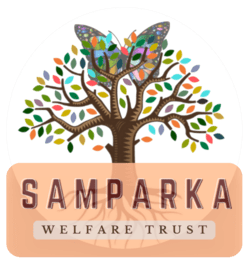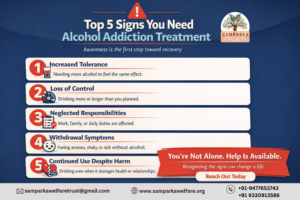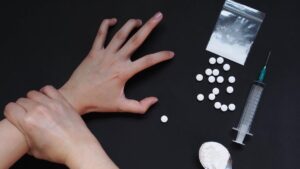Alcohol addiction treatment often seems like a test of willpower—fail, and shame follows. People quit cold turkey, relapse, and then blame themselves for being “weak.” Therapy alone sounds noble, but it doesn’t always stop the cravings.
Here’s a twist—science says medication can boost recovery outcomes dramatically. This isn’t just theory—it’s proven, effective, and recommended by top medical bodies. Alcohol addiction treatment is evolving, and medication is a rising star.
Many overlook it, assuming it’s a shortcut. It’s not. Surprising truth? Medication saves lives in alcohol addiction treatment. No rehab center talks only about willpower anymore. Alcohol addiction treatment needs tools, and medication is a powerful one.
The Role of Medications in Treating Alcohol Addiction
Medications in alcohol addiction treatment aren’t magic pills, but they are game changers. They reduce cravings, stabilize mood, and support long-term recovery efforts. When someone quits drinking, their brain screams for alcohol. Medication can silence that scream.
Drugs like naltrexone block the euphoric effects of alcohol, making drinking less rewarding. Acamprosate helps the brain rebalance after long-term alcohol use, easing post-acute withdrawal symptoms. Disulfiram causes unpleasant effects if alcohol is consumed, reinforcing abstinence through aversion.
These medications work best when combined with therapy, counseling, and peer support. No single path fits everyone; that’s why rehab centers customize treatment plans. Medication is a strong pillar—but not the only one—in alcohol addiction treatment. Used properly, medication can turn a shaky start into a stable recovery.
Benefits of Using Medication in Recovery
Medication enhances alcohol addiction treatment by improving consistency and reducing relapse risks. It’s easier to stay sober when cravings don’t dominate your thoughts every hour. With cravings managed, people engage more in therapy and daily routines. That builds momentum, leading to stronger emotional health and clearer thinking.
Those struggling often regain energy, purpose, and relationships once medication kicks in. Life becomes more manageable when withdrawal symptoms don’t crush your spirit. Medication offers relief from anxiety and insomnia, which are common during early recovery.
Many patients at a rehab center report improved focus and mood stability on medication. It helps people stay in treatment longer, which is linked to better long-term results. Alcohol addiction treatment isn’t just about quitting—it’s about staying quit. Medication helps with that.
Addressing Myths and Concerns
“Isn’t medication just replacing one addiction with another?” is a common myth.
Truth: FDA-approved medications for alcohol addiction treatment are non-addictive and safe. They support recovery without creating new dependencies. That’s critical.
“Doesn’t it mean I’m weak if I need meds?” Not at all.
Using medication shows strength—it means you’re using every tool available. No one questions insulin for diabetes—why question medication for addiction? Many who attend a rehab center start out hesitant but later advocate for medication. Medication doesn’t replace personal effort—it enhances it.
Recovery isn’t about suffering through—it’s about healing effectively. Alcohol addiction treatment must be practical, not prideful.
Medication is a science-backed part of modern alcohol addiction treatment. It helps people stay sober, stable, and supported during recovery. Rehab center professionals now routinely include it in care plans. Shame has no place in healing—only progress matters.
Don’t ignore a proven option because of outdated ideas. Alcohol addiction treatment deserves every available advantage. Explore all paths without fear—you’re worth the effort. Recovery is real. Help is here. Medication can guide the way.







